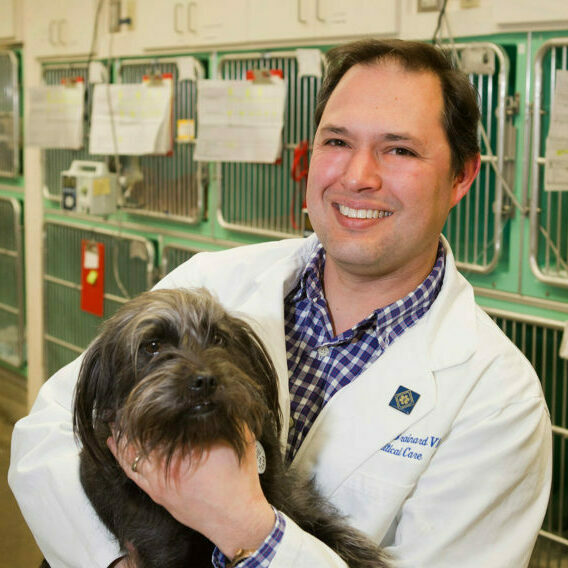Online Conference Emergency Critical Care February 2025February 10 - 12, 2025
Topics:
Emergency Critical Care - Dr. Dana Clarke
Emergency Critical Care - Dr. Benjamin Brainard
This is an on-line CE conference, that is RACE approved as live interactive, featuring Dr. Dana Clarke and Dr. Benjamin Brainard We offer this CE using the NEW VetVacationCE APP. You can earn up to 15 hours of CE with your participation in our Vet Vacation conference. Conference classes will be held following the same schedule as the live event in DUCK KEY in the Florida Keys!
Early Bird: All three days $429 and One day $189. 5 CE hours per day before January 10th then pricing will increase to $499 and $219.
Individual CE certificates will be available through the APP at the end of the meeting.
February 10, 2025 | February 11, 2025 | February 12, 2025 |
$219.00 – $499.00
Description
Online Veterinary Conference 2025: Earn 15 Hours of Virtual Live Interactive Continuing Education!! Dr. Dana Clarke and Dr. Benjamin Brainard are experts in the field of Emergency Critical Care! Topics and biographies are below.
The virtual video and audio webinar platform for our Online Veterinary Conference 2025 allows for the following:
- The speaker’s slide presentation will be on your device screen.
- You will hear the speaker audio.
- You will be able to raise your hand to ask questions and get rapid response answers.
- We will make this as interactive as possible.
- We will send you a link to access the conference.
- A digital CE certificate of completion will be available by scanning the QR code at the conclusion of each day with the VetVacationCE APP.
Prior to the conference, we will email you the notes and links to the event.
VetVacationCE registration for this Live Interactive Veterinary Conference is $429 for the 3 day conference or $189 per day. Each day is 5 hours of CE until January10th then rates will increase to $499 and $219.
You can view our other Online Veterinary Conference 2025 here
See what other participants have to say about our in person and online courses here
Benefits to Live Interactive Online Veterinary Conference 2025 are:
- Ability to select from a variety of topics led by world renowned specialists
- Learn from a safe comfortable environment of your choice
- Access the best educators in the world
- Lower fees
- Replays available upon request
- Increase your skill level
- Stay up to date on new treatments and standards of care within the profession
- No need to travel – lower your carbon footprint
Whether you decide to learn with us in person or online, we guarantee an enjoyable learning experience with VetVacationCE.
Additional information
| Choose Schedule | February 10 – 12 (3 days) $499, February 10 only $219, February 11 only $219, February 12 only $219 |
|---|
Emergency Critical Care

Dana Clarke, VMD, DACVECC
Dr. Dana Clarke graduated from University of Pennsylvania in 2006. After graduation, she completed a one-year rotating internship at Michigan State University, followed by a residency in Emergency/Critical Care at University of Pennsylvania. Upon completion of her residency in 2010, she spent one year observing in Interventional Radiology Service at the Hospital of the University of Pennsylvania. She then became the director of the IR program at PennVet and has a dual appointment to both the sections of Surgery and Critical Care. In 2015, she was appointed to the first faculty position in Interventional Radiology in veterinary medicine. Her research and clinical interests include better understanding of the progression and physiology of tracheal collapse, improving tracheal stent design and sizing, vascular malformations and obstructions, and all forms of respiratory disease within the ICU.
Presentation Synopsis
1. Vascular Access Tips & Tricks
2. Fluid Therapy Controversies
3. Making Light of Electrolyte Disturbances Part 1
4. Making Light of Electrolyte Disturbances Part 2
5. Basic (and Not So Basic) Blood Gas Analysis
6. Urinary Emergencies – Unclogging the Drain
7. Tracheal Collapse & Tracheal Stents – Do They All Go Bad?
8. Challenging Upper Airway Obstruction Cases
Emergency Critical Care

Benjamin Brainard VMD, DACVAA and DACVECC
Dr. Benjamin Brainard is the Edward H. Gunst professor of small animal critical care, in the Dept. of Small Animal Medicine and Surgery at the University of Georgia. He received his undergraduate degree from Dartmouth College and VMD from the University of Pennsylvania. He completed dual residencies at the University of Pennsylvania and is a diplomate of the American College of Veterinary Anesthesia and Analgesia and the American College of Veterinary Emergency and Critical Care.
His clinical interests are critical care medicine, pain management in the ICU, long-term ventilation, and coagulation disorders. His research interests focus on platelet biology and thrombosis in many species, in addition to coagulation assessment and antithrombotic and antifibrinolytic drugs. Dr. Brainard is an Associate Editor for the Journal of Veterinary Emergency and Critical Care.
Presentation Synopsis
1. Urinary Emergencies In Cats
2. Understanding DIC
3. Treating the Patient With Head Trauma
4. Applying the CURATIVE Guidelines to Practice
5. Highlights of the New RECOVER CPR Guidelines
6. Respiratory Consequences of Trauma
7. Sepsis and Septic Shock
8. Case Based ER

